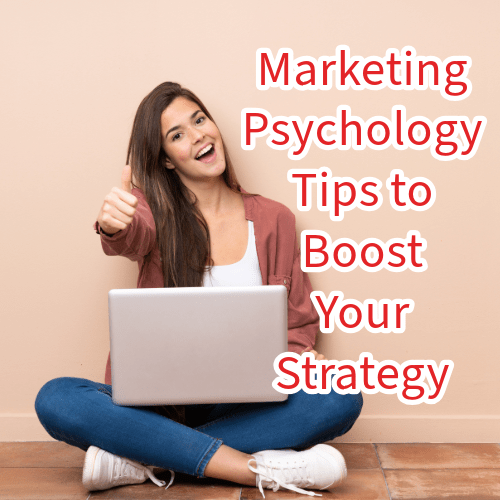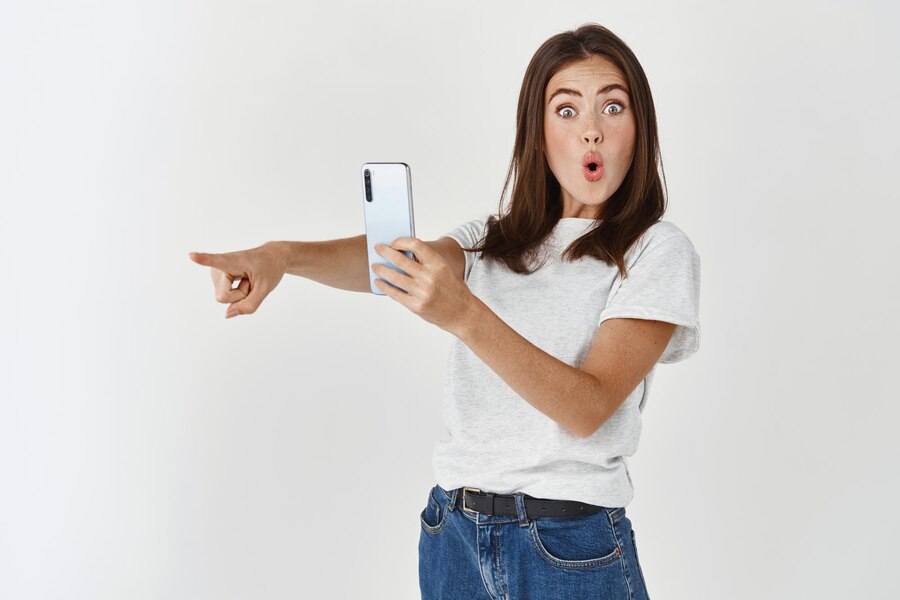
Understanding what drives human behavior is critical to crafting marketing strategies that resonate with your audience.
It’s essential to use marketing psychology tips and tricks to boost your business growth.
You can combine principles from psychology with marketing tips to understand consumers’ needs, preferences, and decision-making processes.
These marketing psychology insights can help optimize your strategy and boost success.
Here are some marketing psychology tricks to boost your strategy, engagement, and long-term customer loyalty.
Marketing Psychology – Tips to Boost Your Strategy

- Social Proof
We tend to follow the behaviors of others, especially when we’re unsure of what action to take. This psychological phenomenon, known as social proof, is one of the most powerful tools in marketing.
We will do the same when we see that others have validated a product or service.
Social Proof Tips
Customer reviews: Display positive testimonials and user reviews on your website.
Influencer endorsements: Partner with influencers whose opinions resonate with your target audience.

User-generated content: Encourage your audience to share their experiences with your product on social media.
Trust badges: Highlight certifications and awards to boost trustworthiness.
By leveraging social proof, you build credibility and boost conversion rates.
- Scarcity and Urgency
People hate to miss opportunities. When something seems scarce or time-sensitive, it becomes more desirable.
This principle, known as scarcity, builds the fear of missing out (FOMO), a powerful motivator in decision-making. (Take Action).

Tips
Limited-time offers: Include countdown timers on your website or email campaigns to signal a sense of urgency.
Low-stock notifications: Indicate when a product is running low in stock to encourage immediate purchases.
Exclusive deals: Offer discounts or bonuses to a select group of customers to make them feel special.
When customers believe they have limited time or availability to act, they make faster decisions, helping you drive sales and increase conversions.
- The Principle of Reciprocity
Reciprocity is a psychological principle where people feel obligated to return favors or gifts.
In marketing, this means that offering something valuable for free—like a helpful resource, free trial, or sample—can create a sense of obligation in your audience to give something back in return, such as purchasing your product or sharing your brand with others.

Tips
Free trials and samples: Offer free access to your product or service to encourage eventual purchase.
Valuable content: Provide free, high-quality content (eBooks, webinars, white papers) that solves a problem for your audience.
Exclusive promotions: Reward loyal customers with special deals or early access to new products.
When people feel like they owe you something, they will reciprocate by engaging with your brand or making a purchase.
- Commitment and Consistency
People generally want to act in ways that are consistent with their previous decisions, behaviors, and self-perceptions.
The commitment and consistency principle suggests that if a person commits to something small, they will stick with it and commit to larger actions later.

Tips
Small asks: Start with small commitments, like signing up for a newsletter or downloading a free resource.
Upsell after commitment: Once customers have made a small purchase, offer them more valuable products or services.
Surveys and feedback: Engage users with a quick poll or feedback form that makes them feel more connected to your brand.
Once a person commits to one action, they will continue, leading to deeper engagement and higher sales.
- The Anchoring Effect
The anchoring effect refers to the tendency for people to rely on the first piece of information (the “anchor”) they receive when making decisions.
In marketing, this means that presenting your audience with an initial price or value sets the stage for how they will perceive future offers.

Tips
Decoy pricing: Show three pricing options, with the middle option positioned as the best deal.
Before-and-after pricing: Display the original price of a product and a discounted price to highlight the savings.
Price comparisons: Compare your pricing with competitors to show the value of your offering.
Setting anchors, you can guide customers’ perceptions and influence their purchasing decisions.
- The Mere Exposure Effect
The mere exposure effect refers to the psychological tip where people develop a preference for things simply because they are familiar.
In marketing, this principle implies that repeated exposure to your brand can lead to trust and engagement.

Tips
Retargeting ads: Use retargeting campaigns to show ads to people who have already visited your site or interacted with your brand.
Consistent branding: Ensure your logo, messaging, and visual identity remain consistent across platforms to reinforce recognition.
Content marketing: Regularly publish valuable content to keep your brand valuable to your audience.
The more familiar your audience is with your brand, the more they will engage with it, making mere exposure a valuable strategy for long-term marketing success.
- Authority and Expertise
People tend to trust and follow the advice of experts in a given field or niche.
The authority principle suggests that by positioning your brand as a credible source of information or expertise, can build trust and influence consumer behavior.

Tips
Expert endorsements: Collaborate with industry leaders, professionals, or influencers to vouch for your product or service.
Authoritative content: Publish in-depth, well-researched articles, white papers, or case studies that showcase your expertise.
Certifications: Highlight awards, certifications, or industry recognition your business has earned.
When your audience views you as an authority in your field, they will trust your recommendations and become loyal customers.
- Storytelling and Emotion
Humans love stories. Storytelling allows marketers to connect with their audience on an emotional level, making the brand more relatable and memorable.
When emotions are involved, consumers will take action. They will make a purchase, subscribe to a service, or advocate for a brand.

Tips
Craft compelling narratives: Share stories that highlight how your product has positively impacted customers’ lives.
Use emotion-driven content: Create marketing materials that evoke emotions such as happiness, nostalgia, or fear to drive engagement.
Highlight your brand’s mission: Focus on the ‘why’ behind your business to inspire loyalty and a deeper connection with your audience.
Emotional engagement creates lasting memories, helping your brand stand out in a crowded marketplace and fostering long-term customer relationships.
Integrating psychological principles into your marketing strategy is a powerful way to influence consumer behavior, build trust, and drive engagement.
Understanding and using marketing psychology can drive growth and success and boost your business.
AI Tools for You
https://www.bestprofitsonline.com/myblog/newai
Tip
How To Improve Your Social Media Marketing
